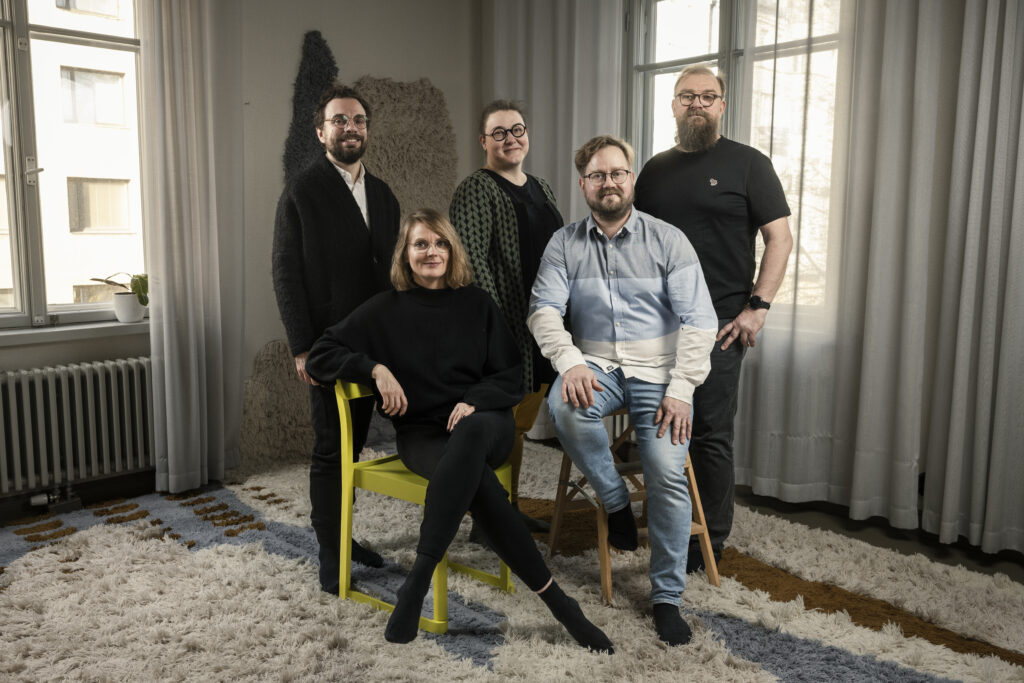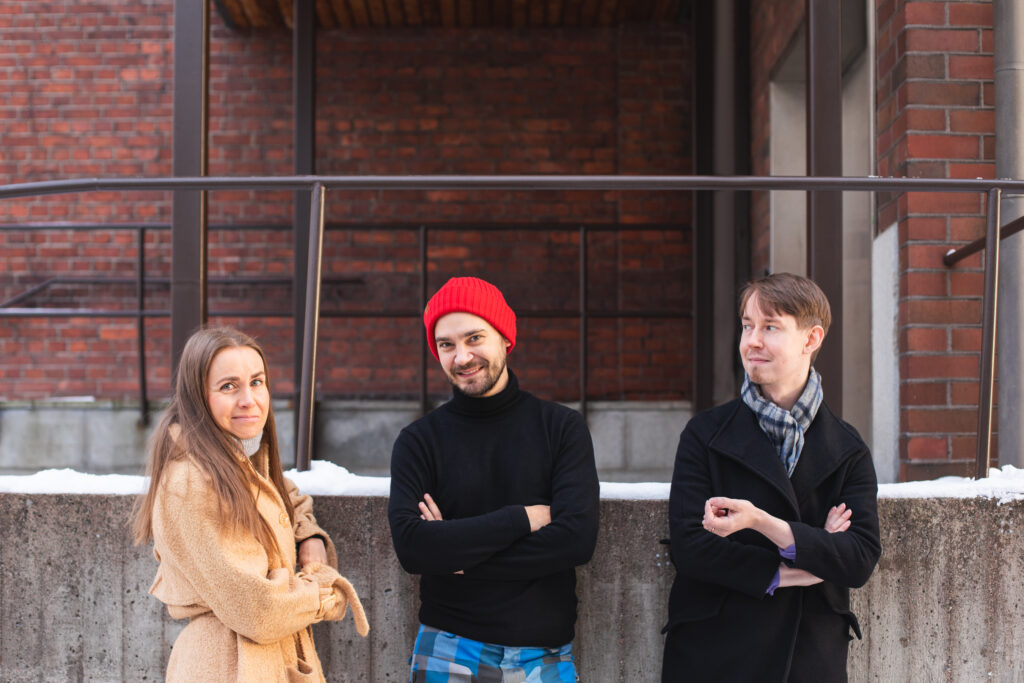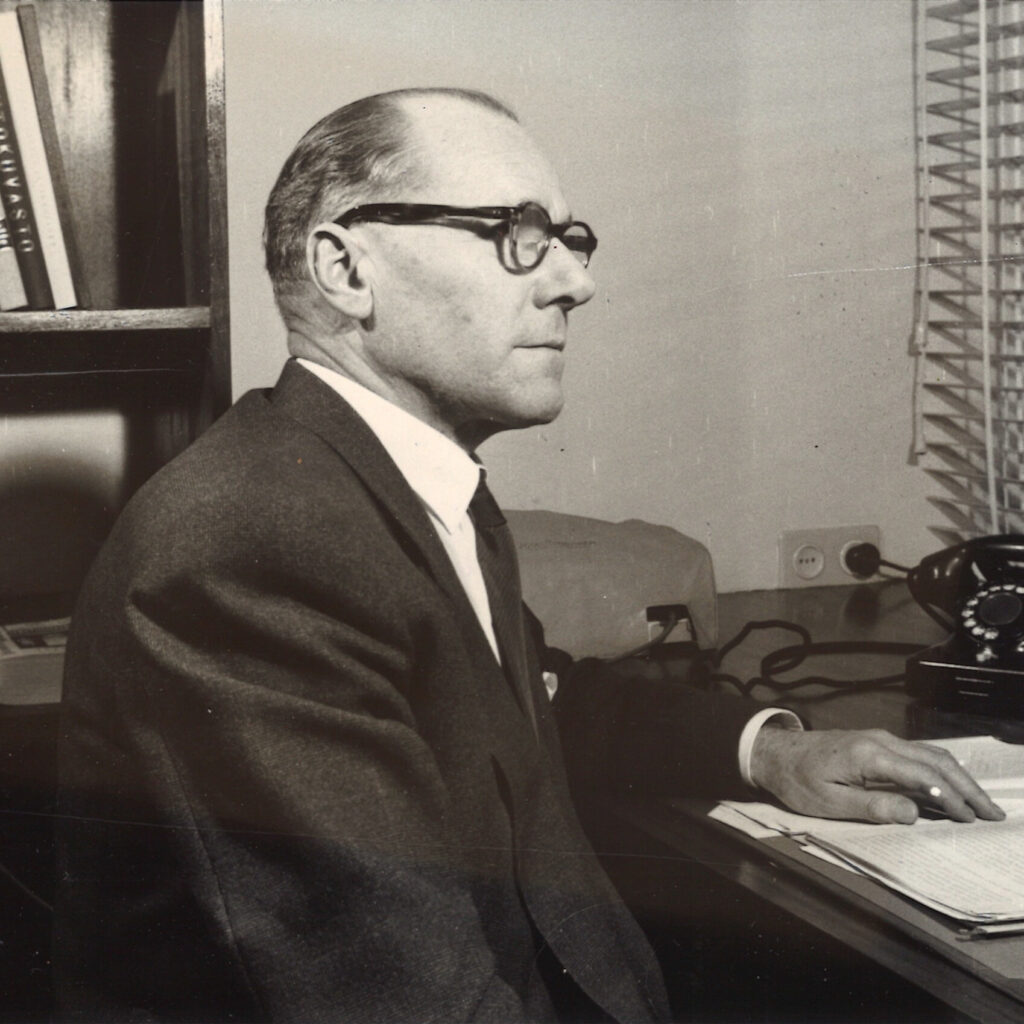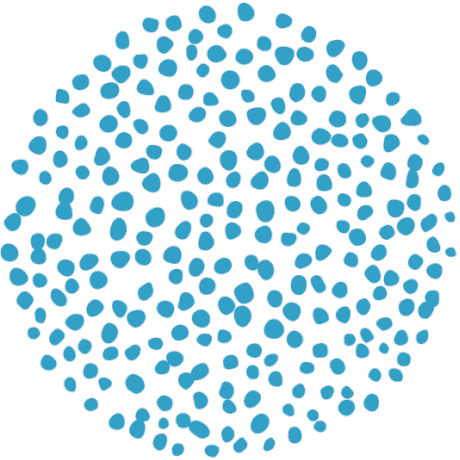Winners
The 2025 Blue Globe Award Honors Five Pioneers in Sustainable Construction
The 2025 Blue Globe Award recognizes five pioneers in sustainable construction who are developing new solutions to the challenges of housing, the built environment, and circularity in the construction sector. The total award amount is €100,000, shared equally among the recipients.

This year’s award goes to Satu Huuhka, Professor of Renovation at Tampere University; architects Kristiina Kuusiluoma and Martino de Rossi, founders of Collaboratorio and Luonnonbetoni Oy; and Mikko Piitulainen and Petri Salmi, founders of Spolia Oy.
According to the European Environment Agency’s October 2024 report (EEA 2024), Europe’s environmental conditions are deteriorating, and most EU environmental and climate targets are at risk of not being met. The report also notes that Finland’s ecological footprint is significant, its material consumption among the highest in Europe, and its waste generation excessive. Construction material flows—especially cement, steel, and aluminum—play a central role in the nature and climate crisis.
The construction and real estate sector is the world’s largest consumer of raw materials, responsible for approximately 35% of global greenhouse gas emissions and 30% of all waste (UNEP 2024). Within the EU, the building sector is the most environmentally burdensome, accounting for more than 30% of the Union’s total environmental footprint, 35% of its waste, and 5–12% of its greenhouse gas emissions (EEA 2024).
With the 2025 Blue Globe Award, the organizers aim to highlight pioneers developing innovative solutions to the sustainability challenges in housing and the built environment. The award recognizes five changemakers who demonstrate that transformation is already possible—through research, design, and circular economy practices.
“Construction is one of the key sectors accelerating climate change. At the same time, renovation and new, more sustainable solutions offer major opportunities to mitigate the ecological crisis. We need bold actions that move sustainable construction from words to deeds. The Blue Globe Award honors precisely these kinds of pioneers,” says Henna Hakkarainen, Executive Director of the TAH Foundation.
Renovation and material choices determine emissions
Professor Satu Huuhka of Tampere University has long studied how renovating and reusing existing buildings can reduce emissions more effectively than demolition and new construction.
“Repairing and developing existing buildings—such as expanding or repurposing them—is a more climate-friendly strategy than even the most energy-efficient demolition-based new construction,” Huuhka says.
According to her, immediate action is necessary: “The IPCC calls for measures that deliver rapid emission reductions. Extending the lifespan of existing buildings is one of the most practical and widely accessible ways to do that. It also buys time to develop low-emission building materials.”
Huuhka’s research group also studies the reuse of components recovered from demolished buildings.
Architects reimagine materials and ethics in construction
Architects Kristiina Kuusiluoma and Martino de Rossi work to reduce the construction sector’s climate impact while challenging conventional design and building practices. Their philosophy centers on viewing buildings not as disposable products but as long-lasting parts of an ecosystem.
“Our design ethics are rooted in respect and honesty toward materials. While mainstream construction tends to conceal, standardize, and polish, we seek what is raw, imperfect, and authentic,” Kuusiluoma and de Rossi explain.
They argue that natural materials and reused structures introduce new ethical and aesthetic dimensions into construction: “They are healthy, reusable, and low-energy—but above all, they bring softness, quietness, and humanity into our living environments.”
Circular economy requires a new financial model
Spolia Ltd. founders Mikko Piitulainen and Petri Salmi advance circular practices in construction but emphasize that genuine transformation must also reshape the underlying economic models.
“The construction sector must shift away from the linear economy and adopt circular models. Instead of optimizing for the lowest price and fastest timeline, we need new mechanisms and metrics that preserve natural value,” Salmi and Piitulainen state.
They argue that circularity should become a competitive advantage: “The strategies already exist—now it’s time to move from pilot projects to real, large-scale implementation across all areas of construction.”
Sininen Pallo Environmental Prize 2024 awarded to Eetti ry, Creators of the Five Garments Challenge, and Developer of a Peer-to-Peer Rental Service

The Sininen Pallo (Blue Globe) Environmental Prize 2024 was awarded on December 4, 2024, to three initiatives and individuals targeting overconsumption in distinct ways. The recipients are Eetti ry (Pro Ethical Trade Finland), the creators of the Five Garments Challenge Julia Thurén and Aku Varamäki and the author of Planetary Wardrobe, Sissi Penttilä, as well as the developer of the peer-to-peer rental platform Circutus, Lotta Lilja. Eetti will receive €40,000 and the other recipients will each receive a €15,000 prize.
The Sininen Pallo Environmental Prize, established in 2021, highlights groundbreaking actions aimed at addressing the ecological crisis. This year’s theme is reducing overconsumption.
The awarded recipients represent three distinct approaches to influencing consumption habits: long-term civil society efforts, impactful communication campaigns, and innovative business practices.
“With this award, we aim to showcase diverse solutions to the challenges posed by overconsumption. All recipients contribute in their own important ways to the shared goal of reducing overconsumption,” says Jonas Lång, General Counsel of Society of Swedish Literature in Finland and representative of the prize committee.
The Sininen Pallo Prize promotes the belief that, despite the significant threats facing our planet, it is possible to transform practices to mitigate the harmful effects of overconsumption, so that the harmful effects of overconsumption do not jeopardize future generations’ opportunities for a good life.
“During the holiday season, it’s especially important to make mindful consumption choices that support the planet’s sustainability. With a wealth of information available, we hope the inspiring work of this year’s Sininen Pallo recipients will encourage many to take action,” Lång adds.
Winners of the Sininen pallo (Blue globe) 2023 are the founders of Kamupak, Iida Miettinen, Karri Lehtonen and Eero Heikkinen

Winners of Sininen pallo 2023: IIda Miettinen, Karri Lehtonen and Eero Heikkinen.
The Sininen pallo was awarded for the third time on 30.11.2023. The winners offer scalable solutions to overcome the environmental crisis. The award is presented by the Maj and Tor Nessling Foundation, the Tiina and Antti Herlin Foundation and Svenska litteratursällskapet i Finland.
The 2023 Sininen pallo was awarded to the three founders of Kamupak: Iida Miettinen, Karri Lehtonen and Eero Heikkinen. The total value of the prize is €100 000 and will be shared equally between the winners. The solution developed by Kamupak’s founders reduces the need for environmentally damaging disposable takeaway food packaging and allows consumers to choose a more sustainable packaging for their takeaway. Kamupak’s solution is to provide restaurants with reusable packaging that stays in circulation through a digital deposit.
“With the Sininen pallo award, we want to highlight that consumer behaviour change has a significant role in overcoming the ecological crisis. But the responsibility cannot rest on the shoulders of individuals. That’s why we want to reward innovations that enable and facilitate large-scale behaviour change,” says Katja Bargum, Science and Executive Director of the Nessling Foundation, who chaired the prize’s working group.
Reducing single-use food packaging is important for many reasons. Food packaging waste is difficult to recycle for hygiene reasons and therefore often ends up in incineration or landfill. Disposable packaging is so widely used that even making it from renewable raw materials is not a sustainable solution in the long term, because so much raw material is needed. Long-term use of takeaway food packaging reduces the pressure to use bio-based raw materials such as wood for packaging.
The Sininen pallo jury sees that, if successfully scaled up, the winning solution could pave the way for the sustainability of the takeaway and fast food sector.
“We are overwhelmed and grateful for this significant environmental recognition, which shows us that we have spent our energy on the right thing. We hope that this recognition will also encourage other entrepreneurs to question established consumption patterns for a more sustainable and circular planet,” says one of Kamupak’s founders Iida Miettinen.
Read the long award citation below
The winners of Sininen pallo, Blå globen 2023 are boldly tackling a big problem: getting rid of environmentally damaging and disposable takeaway food packaging.
Food packaging waste is difficult to recycle for hygiene reasons. The solution that we are awarding today, allows consumers to choose more sustainable and reusable packaging for their takeaway foods.
The winners have succeeded in creating a business model, with a digital platform and innovative logistics, that works in a dispersed restaurant market. They have also calculated how much their business model reduces waste and carbon emissions compared to single-use packaging.
At the moment, disposable packaging is used in such huge quantities that making it from renewable raw materials is not a sustainable solution in the long term. Long-term use of takeaway food packaging reduces the pressure to use bio-based raw materials such as wood as packaging material.
This winning innovation shows leadership, as it already responds to a new EU regulation to reduce single-use packaging, which is only just coming into force.








